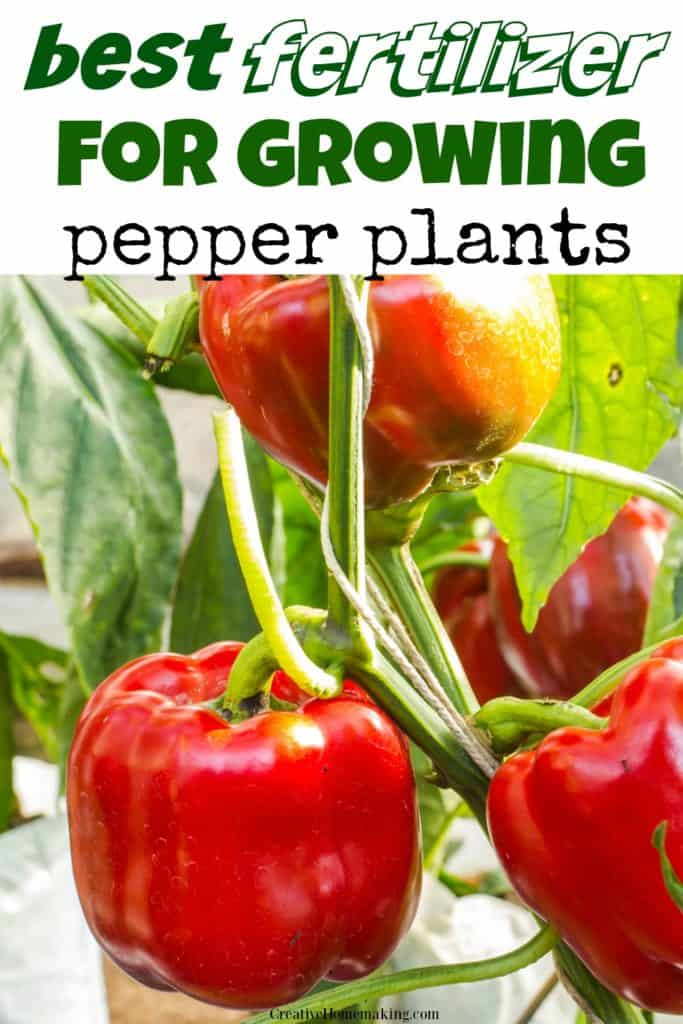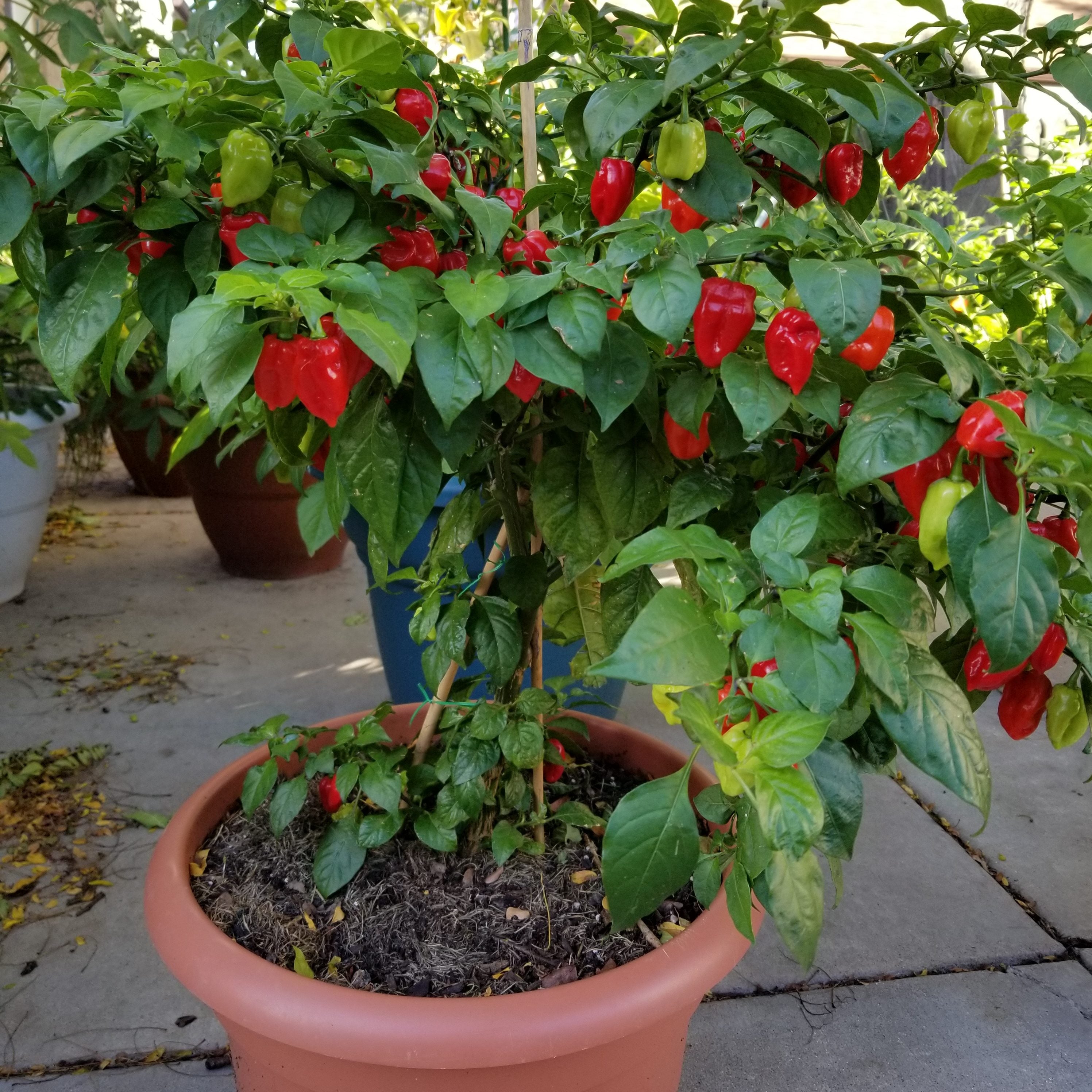Best Fertilizers for Peppers: Enhance Development and Taste with Our Leading Picks
Best Fertilizers for Peppers: Enhance Development and Taste with Our Leading Picks
Blog Article
Just How Plant Foods Play a Critical Role in Cultivating Abundant and healthy Pepper Crops
Fertilizers act as the foundation of effective pepper farming, providing a critical approach to nourishing the dirt and fostering optimal plant growth. The detailed dancing in between important nutrients and the pepper plants' physiological processes highlights the essential function that fertilizers play in making certain a plentiful harvest. From sustaining robust root development to bolstering condition resistance, the impact of plant foods is significant in the growing of healthy and balanced and worthwhile pepper plants. Remain tuned to uncover the nuanced methods in which fertilizers contribute to the prospering of pepper plants and the lasting techniques that underpin their effectiveness.
Significance of Nutrient-Rich Fertilizers
The utilization of nutrient-rich fertilizers plays a crucial role in boosting the productivity and top quality of pepper crops in modern farming practices. Phosphorus, nitrogen, and potassium are key nutrients that are essential for the development and growth of pepper plants.
Insufficient degrees of these nutrients can cause stunted development, lowered returns, and sensitivity to diseases (best fertilizers for peppers). Nutrient-rich fertilizers supply a targeted remedy to make certain that pepper plants obtain the essential components for optimum development and performance. Additionally, these fertilizers help enhance soil fertility in time, producing a sustainable environment for long-term pepper cultivation
Enhancing Plant Growth and Advancement
To enhance plant development and growth in pepper plants, critical application of nutrient-rich fertilizers is vital. Plant foods play a critical role in boosting the general health and wellness and efficiency of pepper plants by supplying them with crucial nutrients that might be lacking in the soil. Potassium, nitrogen, and phosphorus are main macronutrients needed in large amounts by peppers for durable growth. Nitrogen help in leafed eco-friendly growth and total plant vigor, phosphorus sustains root growth and flower development, while potassium contributes to disease resistance and fruit high quality.
In addition to these macronutrients, micronutrients such as iron, magnesium, and zinc are additionally crucial for the appropriate performance of various plant procedures. Iron, as an example, is required for chlorophyll manufacturing, which is vital for photosynthesis and general plant development. Zinc plays a vital role in enzyme activity and hormonal agent synthesis, influencing plant growth and advancement at a mobile degree. Magnesium is essential for the development of chlorophyll and overall power transfer within the plant.

Boosting Illness Resistance With Fertilizers
By tactically incorporating targeted fertilizers, farmers can reinforce the condition resistance of pepper crops, making certain optimal plant health and performance. Plant foods including crucial nutrients like nitrogen, phosphorus, and potassium play an important role in strengthening pepper plants' immune systems, making them extra resistant to numerous illness.

Making Best Use Of Pepper Return Through Fertilizing
Utilizing a well balanced fertilizing technique is essential to achieving optimum pepper yield and ensuring optimum crop productivity. By giving peppers with the ideal nutrients at the correct time, farmers can significantly boost their yield potential. Phosphorus, potassium, and nitrogen are crucial elements for pepper development, with nitrogen aiding in fallen leave and stem advancement, phosphorus sustaining origin growth and blossom formation, and potassium advertising overall plant wellness.
To make the most of pepper return, it is important to perform soil examinations to identify existing nutrient levels and determine any kind of deficiencies that need to be attended to. Based upon these results, farmers can establish a customized fertilization strategy that meets the certain needs of their pepper visit this website crops. Furthermore, correct fertilization methods such as split applications throughout the expanding period can make certain constant vitamins and mineral availability for the plants.

Sustainable Fertilizer Practices for Peppers
In thinking about lasting fertilizer methods for peppers, it is vital to focus on long-lasting soil wellness and ecological stewardship combined with making the most of plant efficiency. Lasting plant food methods aim to preserve or boost dirt fertility while reducing unfavorable environmental impacts. One essential technique is making use of natural plant foods such as garden compost, manure, or cover crops, which not only offer important nutrients to the peppers but also contribute to soil framework and microbial task. These organic alternatives aid construct raw material in the dirt, improving its capability to keep water and nutrients, consequently sustaining lasting crop health and wellness and strength.
Additionally, accuracy farming strategies, such as dirt screening and targeted nutrient applications, can help maximize plant food use, making sure that peppers get the nutrients they need without excess drainage right into waterways. This not just benefits the dig this environment by decreasing pollution but additionally conserves costs for farmers by minimizing waste. By taking on sustainable plant food methods, pepper growers can guard the health and wellness of their crops, dirt, and surrounding communities for future generations.
Conclusion
In verdict, plant foods are necessary for cultivating bountiful and healthy pepper plants. best fertilizers for peppers. They offer necessary nutrients for plant visit this website development and development, increase disease resistance, and maximize return. By executing lasting fertilizer practices, farmers can make sure the lasting health and wellness of their pepper plants and add to a more environmentally-friendly and effective farming system
The elaborate dancing between vital nutrients and the pepper plants' physical procedures underscores the critical duty that plant foods play in ensuring a bountiful harvest.To optimize plant growth and development in pepper plants, tactical application of nutrient-rich plant foods is essential. Fertilizers play a crucial role in improving the general wellness and productivity of pepper plants by offering them with crucial nutrients that might be doing not have in the soil.By tactically incorporating targeted plant foods, farmers can boost the disease resistance of pepper crops, making sure optimum plant wellness and efficiency. Plant foods including necessary nutrients like potassium, nitrogen, and phosphorus play an essential role in strengthening pepper plants' immune systems, making them a lot more durable to various diseases.
Report this page